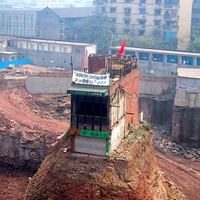For the third year running, China's upcoming National People's Congress will be dominated by political maneuvering and speculation over the 2012 leadership transition. With jockeying for post-2012 power an increasing focus of attention, the outgoing Hu-Wen administration has lost influence, effectively putting the government on lockdown at a time of critical economic and social change. As a result, Beijing has opted to flood the economy with new credit rather than engage necessary structural reforms, creating an increasing disparity between the country's halting social progress and the image portrayed in government propaganda.
Since Deng Xiaoping's oft-cited instruction that China's process of reform and opening to the world should be "like crossing the river, feeling one stone at a time," gradualism has been a watchword of Chinese governance. This approach proved highly effective in the early stages of China's post-1978 marketization. But as the challenges facing Beijing become more diverse and complex, the approach's inherent short-termism and strategic inefficiency have become a serious hindrance to future development. In the past three years, this reticence to effect radical change has been compounded by a near-total paralysis in the central government as the 2012 leadership transition plays out.
A case in point is the persistent failure of the Chinese Communist Party (CCP) to devise and implement effective land laws, leading to unsustainable and inefficient land use in both rural and urban sectors. On an ideological level, successive generations of leadership have failed to fully reconcile private ownership and "socialism with Chinese characteristics," as Deng's plan for the state is known, deferring the issue with half-baked measures such as 70-year urban leases. The party is reluctant to abandon the collective model that still dominates rural land-ownership structures; due to the model's ideological and historical significance, this would be tantamount to acknowledging the fundamental failure of the revolution.

